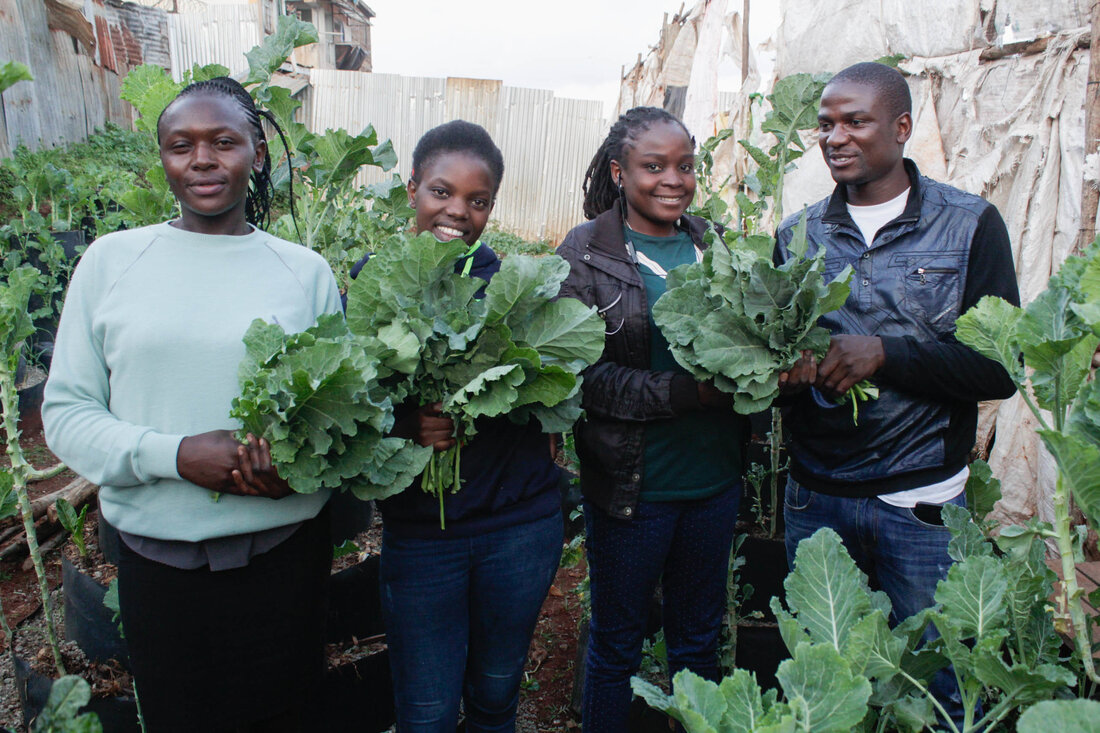Urban farming has become a lifeline for many women in Kenya, especially as food prices rise and access to fresh produce becomes more challenging. In Nairobi and other cities, women are transforming every bit of available space—balconies, rooftops, and even sidewalks—into green, productive farms that bring fresh vegetables to their families and communities. Here’s how this movement is shaping up and making a difference.
1. The Rise of Vertical Farming
With limited space, vertical farming is a popular choice. This approach stacks crops in layers, using hanging sacks or containers placed on shelves or walls, making it ideal for crowded urban areas. This technique is widely promoted by organizations like the UN’s Food and Agriculture Organization (FAO), which encourages urban farming as a way to boost food security in cities facing rapid population growth.

Not only does vertical farming save space, but it also requires significantly less water than traditional farming. Many urban farmers are able to use kitchen wastewater to irrigate their plants, making the method both eco-friendly and efficient. According to recent reports, even small setups can produce significant yields—enough to supplement families’ diets with fresh, nutritious greens like kale and spinach.
2. Reducing Grocery Costs and Increasing Food Security
For families facing high food prices, growing vegetables at home can cut grocery bills by up to 50%. Research shows that the average Kenyan family spends a large portion of its income on food, particularly in urban areas where transportation and middlemen costs drive up prices. By growing their own food, women in urban areas not only save money but also gain control over what goes on their plates.
A survey by the World Bank found that Kenyan households practicing urban farming report better food security, with more frequent access to vegetables and other fresh produce. This is especially critical during the dry season when market prices for vegetables surge.
3. Economic Opportunities and Empowerment
Beyond just feeding their families, many women turn their surplus produce into an income source. Selling extra vegetables locally, or through small community markets, can provide steady revenue, which women often use to support their children’s education or reinvest into expanding their farming operations. Some urban farmers have even partnered with local restaurants or small grocery stores to supply fresh produce, turning their urban farms into small but sustainable businesses.
Programs like those offered by the Association of Women in Agriculture Kenya (AWAK) are instrumental in supporting these women. AWAK provides training in techniques such as container gardening, composting, and pest control, as well as helping farmers understand business basics like pricing and record-keeping.
4. Environmental and Health Benefits
Urban farming has health benefits beyond better nutrition. By increasing green spaces, urban farming helps improve air quality, promotes biodiversity, and even reduces the urban heat island effect. Additionally, fresh produce from local sources means fewer emissions from transportation, a significant advantage in densely populated areas where pollution is high.
Urban farming has been shown to improve diets, too, as access to home-grown produce encourages people to eat more vegetables. Studies confirm that a diet rich in leafy greens like spinach, amaranth, and collard greens supports better skin, heart health, and overall immunity.
5. Looking Forward: Expanding Urban Farming in Kenya
As urban farming grows, advocates push for policy changes that could make it even more accessible and impactful. The Nairobi City County Urban Agriculture Promotion and Regulation Act, for example, provides a framework for residents to engage in urban farming legally and safely. This legislation aims to support more city dwellers in establishing mini-farms by offering incentives and ensuring safe, regulated practices.
Urban farming is quickly becoming a cornerstone of Kenya’s approach to sustainable urban living, thanks largely to the dedication of women transforming small spaces into thriving green hubs. This movement is not only feeding families but also building resilience in urban communities, setting a model for sustainable urban agriculture worldwide.
In short, urban farming offers Kenyan women more than just a way to grow food. It represents independence, resilience, and a sustainable approach to living in a rapidly urbanizing world.








